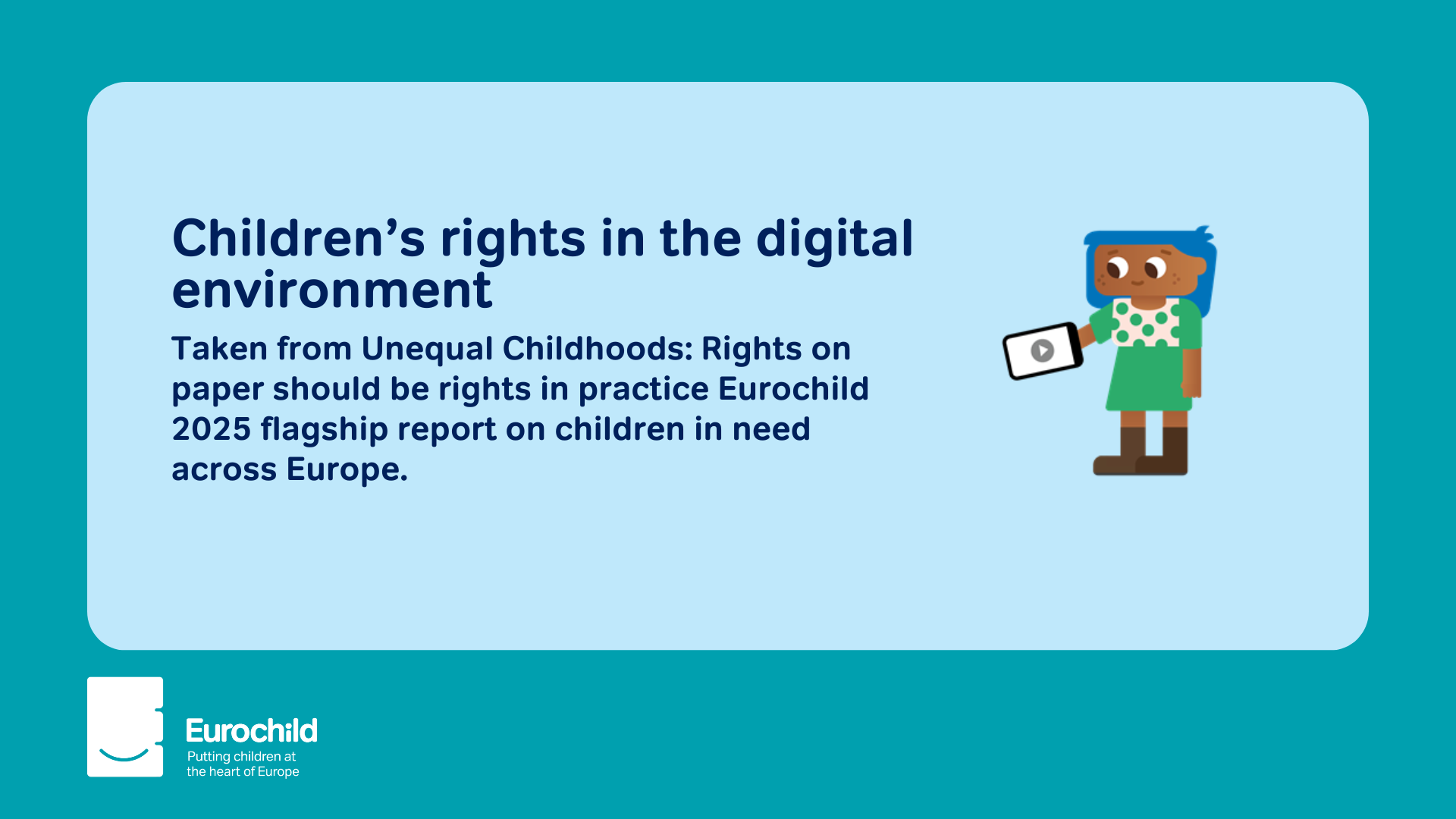Protecting children under the Digital Services Act
Eurochild contributes to the drafting of the guidelines on the protection of minors under the Digital Services Act.
As the Digital Services Act (DSA) continues its implementation, but clarity is still needed on provisions for protecting children. For this, The European Commission is now drafting a set of guidelines to help platforms meet the DSA’s requirements to ensure a high level of privacy, safety, and security for minors (Art. 28).
Eurochild and other 33 civil society organisations welcomed this work encouraging the EU to provide clear and concrete guidance to online platforms on how to comply with their obligations, informed with the views of children, and on the basis of the UNCRC and the General comment No. 25 on children’s rights in the digital environment. You can read the statement here.
Any online safety tool must be capable of addressing all types of harms that concern children (cyberbullying, age inappropriate content, data protection, the harmful or illegal use of their private images and videos and harmful contact – including for child sexual abuse purposes –) and their multiple effects on the full spectrum of children’s rights. In fact, our latest research shows that children prefer online safety measures that empower them and give them agency, by prioritising their safety without compromising the exercise of other rights.
Therefore, a child rights based approach is needed. The guidelines will be a complementary instrument with legal base on the DSA, meaning that its provisions will not necessarily be legally prescriptive but recommendatory. At Eurochild we believe therefore that the guidelines should be ambitious and provide a framework to help platforms ask the right questions, notably (a) if they are likely to be accessed by children, and if so (b) if they provide a high level of privacy, safety and security, namely through a child rights impact assessment and an embedded risk assessment.
Such an assessment should include questions that address the impact of digital design and the risks associated to it in all of children’s rights, most notably their rights to access, information, non-discrimination, protection, privacy and to be heard, with the best interests of the child at heart.
For example, this would include questions such as: How do children use your service and what risks are associated with that use?, Are your design choices contributing to creating a safe and healthy environment for children and promoting healthy behaviours by and towards children?, etc.
Such assessment should also be accompanied by good practice and recommendations for mitigation measures, while avoiding a long list of good practice difficult to be applied or scaled up across the industry. For example, following safety-by-design approaches, the guidelines should recommend, among others: proportionate age assurance, data minimisation, high-privacy by default, respectful recommender systems, child-centric Terms and Conditions, appropriate parental controls, child-friendly reporting mechanisms and avoidance of dark patterns.
We look forward to supporting this work onwards to ensure a Digital Service Acts that delivers for children.
Read the full Eurochild contribution.
For more information, read the joint report with 5Rights Foundation on the DSA implementation, or contact Fabiola Bas Palomares, Eurochild Lead Policy & Advocacy Officer on online safety.




